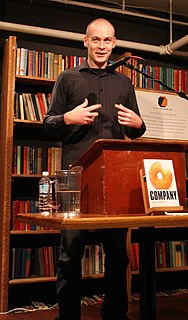A Quote by Ngaio Marsh
Related Quotes
Morality makes stupid.- Custom represents the experiences of men of earlier times as to what they supposed useful and harmful - but the sense for custom (morality) applies, not to these experiences as such, but to the age, the sanctity, the indiscussability of the custom. And so this feeling is a hindrance to the acquisition of new experiences and the correction of customs: that is to say, morality is a hindrance to the development of new and better customs: it makes stupid.
We are discreet sheep; we wait to see how the drove is going, and then go with the drove. We have two opinions: one private, which we are afraid to express; and another one - the one we use - which we force ourselves to wear to please Mrs. Grundy, until habit makes us comfortable in it, and the custom of defending it presently makes us love it, adore it, and forget how pitifully we came by it. Look at it in politics.
Oh," the girl said, shaking her head. "Don't be so simple. People adore monsters. They fill their songs and stories with them. They define themselves in relation to them. You know what a monster is, young shade? Power. Power and choice. Monsters make choices. Monsters shape the world. Monsters force us to become stronger, smarter, better. They sift the weak from the strong and provide a forge for the steeling of souls. Even as we curse monsters, we admire them. Seek to become them, in some ways." Her eyes became distant. "There are far, far worse things to be than a monster.




































